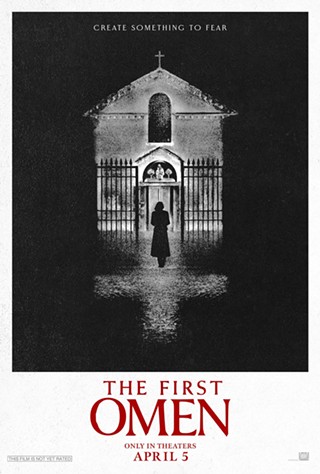Prior to the creation of Fox News, there was a group called "the press" that attempted to combat this by informing people about the heinous actions of their leaders. Among those in this "press" was a drug-addled degenerate named Hunter S. Thompson, who thought it would be a good idea if the people in charge of the world had a commitment to truth-telling. For this heresy, the powers that be destroyed him with fame and its trappings, and now director Alex Gibney (Enron: The Smartest Guys in the Room and Taxi to the Dark Side) has put together a documentary that's ostensibly about Thompson's life.
Ostensibly. Actually, it's more about the America that Thompson observed and wrote about, a magical place where motorcycle gangs and hippies and charmingly naïve political candidates were real people, instead of on-screen characters acted by busty gossip-column fodder and elderly has-beens.
Thompson first came to prominence writing about the Hells Angels in the 1960s. He not only rode with them; he was also brutally beaten by them, which gave him the kind of journalistic cred you don't get by lobbing softballs at Ari Fleischer. This brought him to the attention of Rolling Stone publisher Jann Wenner, who at one time tried to tie rock culture to investigative journalism and progressive politics. That was before the invention of Britney Spears, when Americans were rioting in the streets because both political parties thought it was a good idea to lob an obscene amount of napalm at random villagers in southeast Asia.
Thompson covered the political beat and produced some interesting work, first vilifying Hubert Humphrey for being the flip-flopping coward that he was, and then lionizing George McGovern for being the political naïf that he was. McGovern earned Thompson's adulation by proposing a timetable to get out of Vietnam. Luckily, America saw through his defeatist ploy and elected to stay in Vietnam by following the Republican plan of losing the war five years and thousands of American lives later.
Gibney's film does a great job capturing the national weirdness that allowed Thompson to thrive. Through archival footage and interviews with those who knew, loved, reviled and got high with Thompson, Gibney captures what could best be called an external view of the man who invented gonzo journalism. While there are a lot of interviews with Thompson himself, who died by his own quivering, cocaine-and-booze-fueled hand in 2005, the film doesn't seek to get inside his head so much as it wants to show the effect that he had on the world and those around him.
Thompson and that world became most deeply entangled in what was probably his last great stunt as a journalist, running for sheriff of Aspen, Colo. His platform included tearing up all of the streets and replacing them with sod, renaming Aspen "Fat City" and promoting the free distribution of marijuana. Shockingly, this progressive platform failed to get him elected, though it did cement his strange fame.
The latter section of the film recounts how this fame brought Thompson a coterie of naked, writhing admirers who inflated his ego and ruined his work, until he hit such a low of alcoholism and despair that Jimmy Buffett intervened in an attempt to save him. Yes, Jimmy Buffett. It's hard to imagine how bad someone's life would have to be for Jimmy Buffett to come in as the voice of reason, but that was where Thompson found himself.
The film begins with Thompson's ex-wife saying, "He'd known for a really long time that he was no longer a really good writer," and it ends there as well. But in the middle, you can see a man who was obsessively energetic and weird, and produced some of the most compelling political prose in American history. And Gibney knows enough to make that the focus of his story, even though he includes all of the trappings of Thompson's strange persona: that he went pig-hunting with a submachine gun, his appearance in the Doonesbury comic strip as Uncle Duke, and writhing, nubile hippie girls nakedly sucking the life out of the aging writer.
It's a good documentary, not as hard-hitting as Gibney's Academy Award-winning Taxi to the Dark Side, but still a smart way of doing a biopic without getting lost in the subject. For a look at what America was, and how it changed into the cartoon that it wanted to be, Gibney's film picks the perfect subject, and executes it with clarity, precision and a deep sense of sadness.










